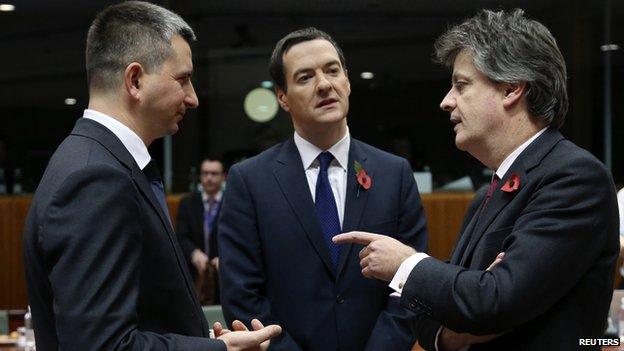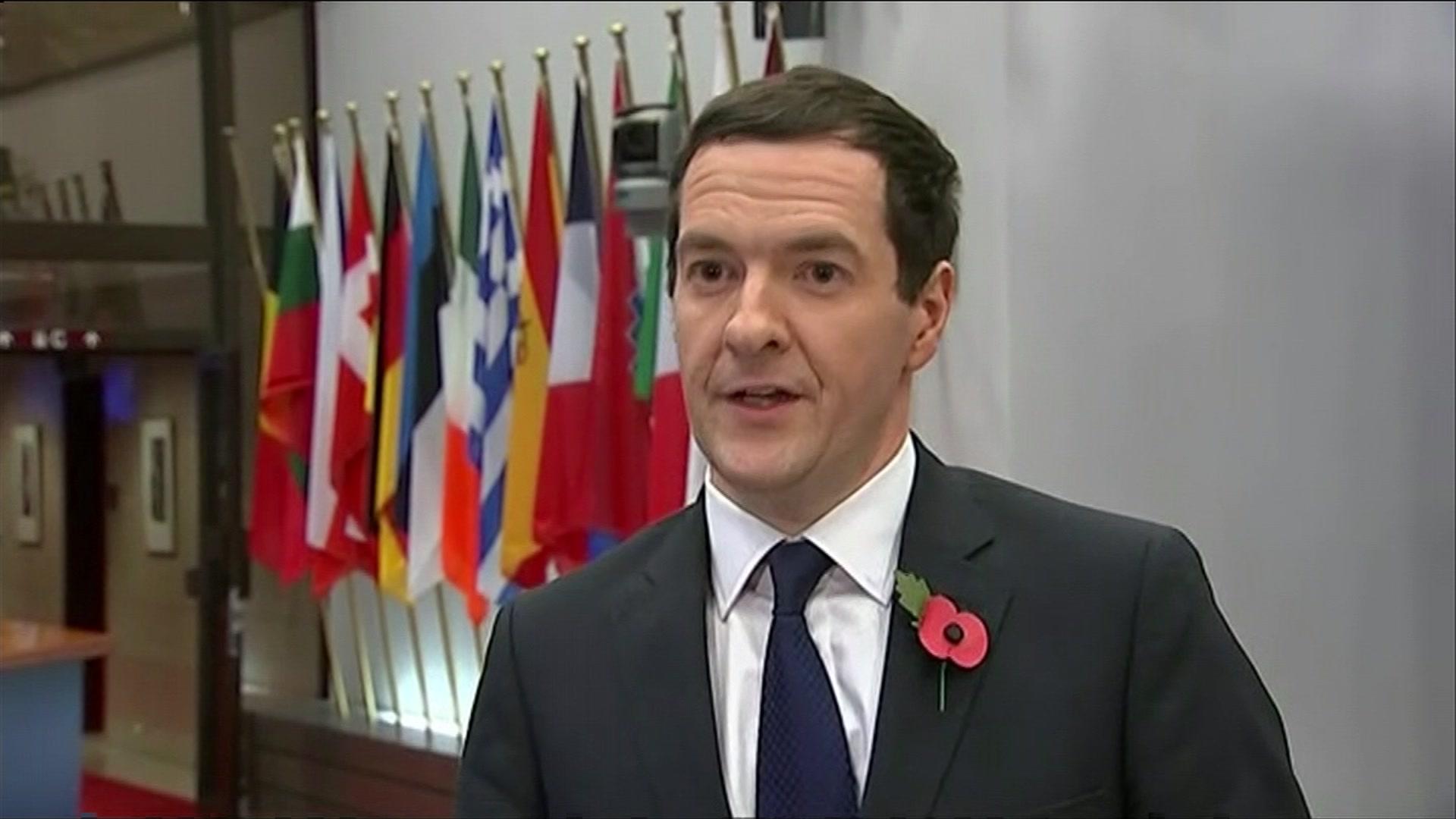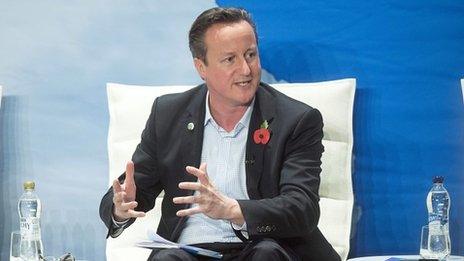EU budget battle: Devil's in the detail
- Published

UK Chancellor George Osborne (centre) spoke of an outcome "far beyond expectations"
British triumph or smoke and mirrors? As ever, it depends on your perspective.
The government can certainly claim some successes.
It was British pressure, and British protest, that helped forge an agreement that payment of the extra EU budget "adjustments" could be delayed, and that no interest would be charged.
Other countries were sympathetic to that, and it means no British payments will have to be made until after the UK general election next May.
There was also clearly a willingness within the European Commission to work with the UK to make the bill seem more palatable.
Face-saving is sometimes in everyone's interest.
But what about the claim that the British £1.7bn (€2.1bn) bill has been halved?
British officials say that it was never clear whether the UK's budget rebate, first negotiated in 1984 by Margaret Thatcher, would apply to these extra payments.
They've made sure it does, they say, and that has brought the total down.
Questions remain
But Commission officials, and ministers from other countries, say the rebate has always applied to the UK's full contribution to the budget, based on GNI (gross national income) - in other words, it was always going to reduce the amount paid.
Normally rebates are paid a year in arrears. But Britain has won a concession that this time the rebate will be paid in the same year the money is due.
Some of the details remain unclear - perhaps deliberately so. The size of the reduction caused by rebate calculations is larger than expected.
But other countries say the principle that member states have to pay the money they owe has been upheld.
Honour satisfied, just about.
- Published7 November 2014

- Published7 November 2014
